We are already living in the age of climate change, but we have all the tools and opportunities we need to act. Everyone can do their part to avoid the worst possible consequences. Company leaders have a special responsibility and opportunity to make positive systematic changes. The only question is how. This was the topic of the BCSDH’s business lunch held on October 13, which focused on the Time to Transform 2030 program which is aimed at fostering systemic change, and the Race to Zero program, which is helping to achieve net-zero emissions.
At the event, which was hosted by BNP Paribas, outstanding managers, leading women, and business solutions in the field of sustainability were recognized in three categories with the ‘For a Sustainable Future’ award this year.
Budapest, 13th October 2022 – “Business as usual” is not only being questioned but has been disrupted. We still have a chance to make the world a better place, but we only have a short window of time to transform our companies, our dysfunctional systems, and our society. What is needed for these changes to happen? Who can lead this change, and how? At the business lunch of the Hungarian Business Council for Sustainable Development (BCSDH), the framework of the Time to Transform 2030 program launched this year was presented in search of answers to these questions.
This year, for the sixth time, BCSDH – comprising 128 member companies which produce around 30% of Hungarian GDP – presented the ‘For a Sustainable Future’ award in the categories of Change Leader, Leading Women, and Business Solution.
Csaba Kőrösi, President of the UN General Assembly, joined in live via video link from New York, greeted the participants, and thanked the BCSDH for recognizing and certifying outstanding work for sustainability. In his thank you speech, he emphasized that we are at the beginning of a new historical era. It is necessary to put action onto a new track: to manage the crisis and implement transformation at the same time. To solve the challenges of water, climate, energy, food, and inequalities in a transformative way, which requires leaders of change. The management of the complex crisis must be based on scientific evidence.

Gergely Litkai, the founder and director of Dumaszínház, who as a climate activist is committed to the cause of sustainability, drew attention to the need for personal responsibility in his humorous yet serious performance: “There is an increasing chance that we will exceed 1.5oC, and our current lives will surely change. We are not mentally prepared for this. Everyone must first clarify what they can change. We need to mentally prepare ourselves so that we don’t experience this change as victims, but act in the hope of a good life. We need to rethink our systems to see if the measure of success is really what we think it is now, and we need to find new values that are sustainable. And what we can do, we must do, because everyone has responsibility. Individuals must change first, because all systems are built from them“ – Gergely Litkai explained.

In his introductory remarks, Attila Chikán Jr., President of the BCSDH, highlighted: “Now is the time for action. The pace and extent of changes so far are smaller than expected. We have all the tools for avoiding climate catastrophe; we just have to use them. The current crisis cannot postpone these steps. We still have a narrow window of time for the basic and immediate transformation of our systems. As the president of BCSDH, it is clear to me that companies must be at the forefront of systemic changes. Those who act earlier are apparently less likely to suffer from external effects such as rising energy prices or disruptions in supply chains. Transformation requires a change in attitude that will fundamentally change the short- and long-term ideas and decisions of business managers. This is what our Time to Transform 2030 program, which defines this decade, is all about.”

Things have to change, but how? – this question was the focus of the CEO round-table discussion moderated by Irén Márta, managing director of BCSDH, in which Dr. Zsuzsanna Diószegi, managing director of EUROAPI Hungary Kft., Sándor Baja, managing director of Randstad Hungary Kft., and Rajmond Percze, managing director of Agroloop Hungary Kft. shared their opinions.

Based on the data from the BCSDH corporate maturity survey, in the case of 85% of the participating companies sustainability aspects are integrated into management at some level, but often to a lesser degree than the development of their visions – i.e., economic aspects still often override sustainability action.
Further, according to 2022 Towards Net Zero research, the proportion of companies targeting carbon neutrality has more than doubled (73%) compared to last year’s survey, and 79% of companies have some kind of emission-reduction goals, but only 60% have specific goals, and only 44% are measuring at least Scope 1 and 2 emissions.
Main sponsor of Race to Zero program: Budapest Airport. Highlighted sponsor: E.ON, Denkstatt: Sponsors: Alteo, Buildext, Leaseplan, Unilever.
Sponsor of BCSDH’s carbon-conscious events: LeasePlan.


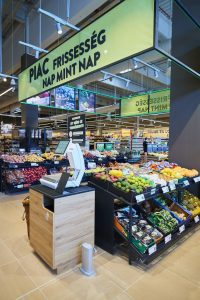 Some of the supermarkets have been equipped with new functions during the renovation that need a greater electricity supply. But, thanks to the new technologies implemented their electricity consumption doesn’t increase and, in some cases, it is actually reduced by 10-15 percent. The explanation behind this is the technological and energy-saving measures put in place.
Some of the supermarkets have been equipped with new functions during the renovation that need a greater electricity supply. But, thanks to the new technologies implemented their electricity consumption doesn’t increase and, in some cases, it is actually reduced by 10-15 percent. The explanation behind this is the technological and energy-saving measures put in place.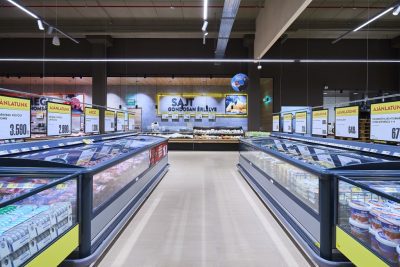
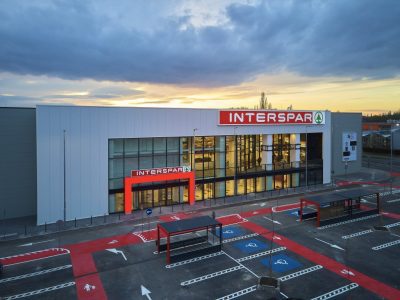




 MasterPlast – Hungarocell Green Program
MasterPlast – Hungarocell Green Program E.ON Hungária Group – The urban energy efficiency and energy community model is an exemplary, complex, and integrated solution implemented in cooperation with stakeholders, especially the city of Szolnok.
E.ON Hungária Group – The urban energy efficiency and energy community model is an exemplary, complex, and integrated solution implemented in cooperation with stakeholders, especially the city of Szolnok.
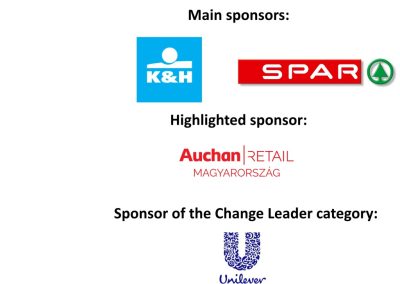




 “The goal of the Hungaricool product competition is to identify and support Hungarian small producers, to offer cooperation opportunities to family companies and entrepreneurs that meet the conditions and apply in the areas defined in the call with unique and exciting products that respond to market demand. The winners of the competition aiming to find and support the creative resources of the domestic economy, can offer their original flavour combinations, imaginative food or exciting non-food products in INTERSPAR stores and the SPAR Online shop. Following the past three Hungaricool rounds so far, 26 winning suppliers are present on the shelves of our retail chain with a total of more than a hundred products. In the framework of the programme, as business mentors we also provide a wide range of marketing support to the winners through the SPAR Supplier Academy,” explained Gabriella Heiszler, CEO and chair of SPAR Hungary.
“The goal of the Hungaricool product competition is to identify and support Hungarian small producers, to offer cooperation opportunities to family companies and entrepreneurs that meet the conditions and apply in the areas defined in the call with unique and exciting products that respond to market demand. The winners of the competition aiming to find and support the creative resources of the domestic economy, can offer their original flavour combinations, imaginative food or exciting non-food products in INTERSPAR stores and the SPAR Online shop. Following the past three Hungaricool rounds so far, 26 winning suppliers are present on the shelves of our retail chain with a total of more than a hundred products. In the framework of the programme, as business mentors we also provide a wide range of marketing support to the winners through the SPAR Supplier Academy,” explained Gabriella Heiszler, CEO and chair of SPAR Hungary.
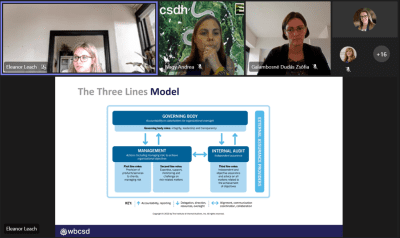



 “This year, the Hungarian Charity Service of the Order of Malta again supports the families of 1,500 children with new school supplies, PE accessories, and school bags full of necessary supplies with the help of the customers of the store chain. The heavy costs that come with the beginning of the school year are a burden for a lot of Hungarian families. These donations help those in the most disadvantaged situations and prevent their children from having to start school missing essential or even all their school supplies. We thank our customers who purchased notebooks, stationary items, pencil cases, or other supplies at the end of August in INTERSPAR stores to support the donation campaign, as well as those who bought our donation cards to do their bit to support our campaign. With the help of SPAR Hungary, 300 school supply bags, each worth 10,000 forints, were added to the donations collected during the campaign,” said Tamás Romhányi, head of communications of the Hungarian Charity Service of the Order of Malta.
“This year, the Hungarian Charity Service of the Order of Malta again supports the families of 1,500 children with new school supplies, PE accessories, and school bags full of necessary supplies with the help of the customers of the store chain. The heavy costs that come with the beginning of the school year are a burden for a lot of Hungarian families. These donations help those in the most disadvantaged situations and prevent their children from having to start school missing essential or even all their school supplies. We thank our customers who purchased notebooks, stationary items, pencil cases, or other supplies at the end of August in INTERSPAR stores to support the donation campaign, as well as those who bought our donation cards to do their bit to support our campaign. With the help of SPAR Hungary, 300 school supply bags, each worth 10,000 forints, were added to the donations collected during the campaign,” said Tamás Romhányi, head of communications of the Hungarian Charity Service of the Order of Malta.
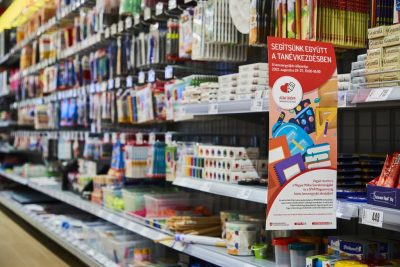
 The Company is a key player in the cash-saving digitalisation process in Hungary, and its role in the introduction and education of modern financial solutions is undeniable, as it provides services via a nationwide, interoperable payment platform. The Company is continuously exploring areas where there is potential for the introduction of cashless payment services that can serve the convenience and security of the population and all aspects (social, economic and environmental) of domestic sustainability.
The Company is a key player in the cash-saving digitalisation process in Hungary, and its role in the introduction and education of modern financial solutions is undeniable, as it provides services via a nationwide, interoperable payment platform. The Company is continuously exploring areas where there is potential for the introduction of cashless payment services that can serve the convenience and security of the population and all aspects (social, economic and environmental) of domestic sustainability.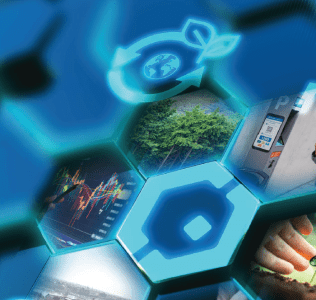 It is also important that both public/user and professional dialogue are a high priority in the life of the Company, and it is important to provide up-to-date information, reporting and insight on a number of innovative issues: the recently established NM Innovation, as the NM Plc. Innovation Workshop, in line with the Hungarian digitalisation and innovation efforts, has launched its website and its professional, yet accessible blog, which is constantly updated and can be accessed via the following link:
It is also important that both public/user and professional dialogue are a high priority in the life of the Company, and it is important to provide up-to-date information, reporting and insight on a number of innovative issues: the recently established NM Innovation, as the NM Plc. Innovation Workshop, in line with the Hungarian digitalisation and innovation efforts, has launched its website and its professional, yet accessible blog, which is constantly updated and can be accessed via the following link: